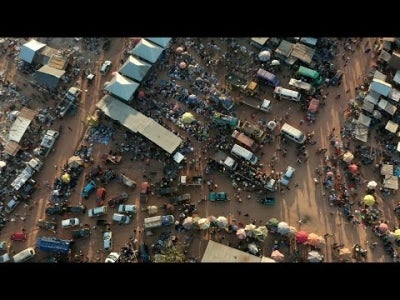
The Republic of the Congo has taken an important step towards a sustainable mining sector, with the launch of a $10.5-million project to reduce the use of mercury by the nation’s artisanal miners.
Widely used in the artisanal and small-scale mining (ASGM) to extract gold from ore, mercury is associated with serious health problems amongst miners, including nervous, digestive, and immune system damage. Once released, mercury can travel far from its point of origin via the atmosphere, water bodies, and food chains, posing a risk to health globally.
As many as 10,000 active miners directly depend on Congo’s ASGM sector for their livelihoods. Together, the country’s artisanal miners are responsible for the release of as much as 2.3 metric tons of mercury into the environment every year from both rudimentary and semi-mechanized refining operations.
The use of mercury in Congo is of particular concern given the nation’s global environmental significance. Sixty-five percent of the country is in the Congo Basin, Africa’s largest contiguous tropical forest. Home to one of every five species on our planet, the forest is one of world’s largest carbon sinks, sequestering more carbon than all the tropical forests of the Amazon and Asia combined – making the continued health of the forest vital to global climate stability.
With 92 percent of Congo’s gold miners operating informally, ASGM threatens the Congo Basin through both mercury contamination and illegal deforestation for mining expansion, endangering species and people alike.
Funded by the Global Environment Facility under the global planetGOLD program and led by the United Nations Environment Programme (UNEP) with the support of the Centre Africaine pour la Santé et l’Environnement (CASE), the "Global Opportunities for the Long-term Development of the ASGM Sector" project will encourage the uptake of mercury-free refining technologies in Congo’s artisanal and small-scale mining sector, while improving access to markets and finance for miners and reducing the industry’s environmental impact through sustainable landscape management practices.
“Reducing the use of mercury in ASGM operations and improving land management will be key in the protection of Congo’s abundance of natural resources, an issue that affects us all,” Ludovic Bernaudat, Head of UNEP’s GEF Chemicals and Waste Portfolio said.
The five-year initiative will help Congo’s policymakers strengthen institutional capacity and decision making, to improve policy and regulatory frameworks. Mining organizations will receive trainings to develop their financial literacy, as well as their knowledge on responsible mining initiatives. Moreover, ASGM communities will be provided capacity building programs to improve formalization, given mercury-free processing equipment and linked to national suppliers and manufacturers of equipment for long-term support.
In conjunction, to align with the existing planetGOLD knowledge platform, domestic outreach strategies will promote ASGM within the formal economy and miners will have the opportunity to visit innovative sites to share common experiences and exchange best practices.
The commencement of the project marks the beginning of a formalized, professional and responsible ASGM sector in the Republic of the Congo – for a safer, cleaner and more profitable future.
This article was published by UNEP.


